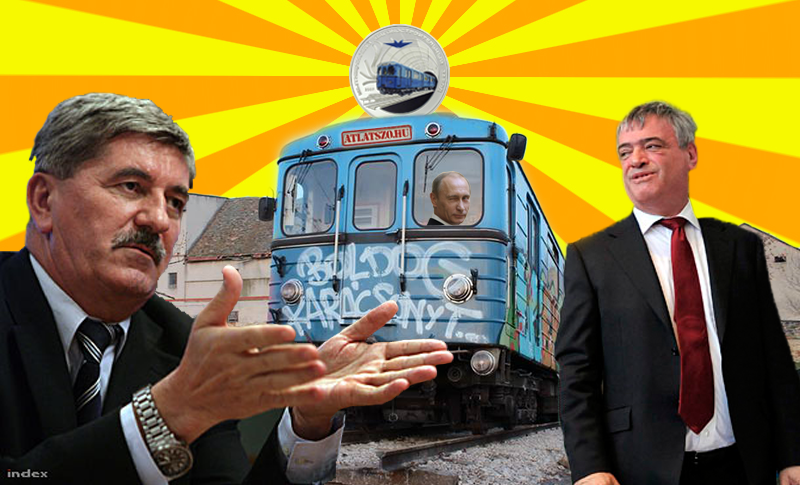The https://english.atlatszo.hu use cookies to track and profile customers such as action tags and pixel tracking on our website to assist our marketing. On our website we use technical, analytical, marketing and preference cookies. These are necessary for our site to work properly and to give us inforamation about how our site is used. See Cookies Policy
Russian vehicle supplier gets a helping hand from Hungarian lobbyists in metro refurb deal
Russian firm Metrovagonmas has a rich history when it comes to securing public-funded contracts from Budapest. It seems the company has a strong group of Hungarian lobbyists behind them, with Metrovagonmas most recently being selected to refurbish the city’s metro infrastructure, a task which increasingly looks set to fall short of expectations, both in terms of outcomes and finances.
Winning the tender to refurbish some 222 carriages currently operating on Budapest’s M3 metro line, Metrovagonmas was called in to update the very carriages the company had delivered 40 years previously. In total, the city is spending HUF 90 billion (€289 million) refurbishing the M3 line’s vehicles, an amount which would have been enough to buy a brand new set of carriages with longer lifespans.

Atlatszo’s sources say that Metrovagonmas’s tender victory was aided by Istvan Kocsis, an industrialist who has popped up in numerous high-profile appointments at state transport, energy and asset management agencies over the years, and is well known for his close ties to Russian companies. When we spoke to Budapest mayor Istvan Tarlos, he denied any knowledge of Kocsis’s involvement in the tender selection process, casting doubt over the truth of such claims. However, people close to Tarlos have hinted that the answer lies with the national government rather than the mayor’s office. This is because it was the government’s decision to renew the metro trains, rather than buy new ones, and because Foreign Affairs and Trade Minister Peter Szijjarto had held talks in Moscow immediately before the tender deadline was due to close.
Secret dealings between the Hungarian government and the Russian company are nothing new. Back in the mid-90s, the socialist government led by Gyula Horn wanted to procure intelligence gathering equipment from the firm. To keep the deal confidential, they created an intermediary company, Nador 95 Rt., which was to buy metro carriages from Metrovagonmas as a financial and administrative cover for the acquisition of the reconnaissance gear. However, the deal came to nothing and Nador eventually went into liquidation in 2009, leaving behind substantial debt.
Nevertheless, Kocsis, and close associate Andras Szasz, continue to play a major role in supporting the Russian cause in Budapest. Both have boasted lucrative Russian connections over the past decades, and have drawn on these networks in order to successfully advance their careers.
Government involvement in the Metrovagonmas deal is further supported by the Russian firm’s selection of a partially state-owned company as one of its vendors for the project. Sources close to the government claim the state only acquired the company, based in Dunakeszi – the hometown of minister Szijjarto – and directed work its way in order to save the failing firm and numerous jobs.
Besides the train overhaul, the M3’s rails and tunnels require significant refurbishment. Budapest public transport firm BKV is hoping to secure HUF 125 billion (€402 million) in European Union funds for the investment, but the exact details of the plan are yet to be finalized. However, doubts have been cast as to whether the nature of this investment is in compliance with EU regulations, putting the financial prospects of the entire project at serious risk. To make matters worse, even with the preliminary plans it is clear that the metro overhaul will fall short of creating a complete, modern transport system. For instance, not all of the new stations will be fully accessible for passengers with disabilities.

